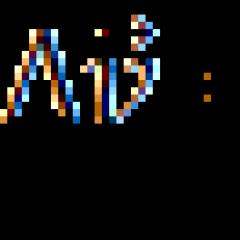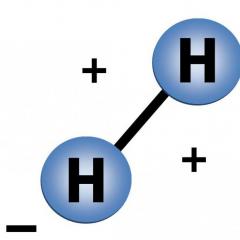"Piggy bank" is the root in the word and morphemic analysis of the composition. Magic piggy bank
Back forward
Attention! Slide previews are for informational purposes only and may not represent all the presentation options. If you are interested this work please download the full version.
Objectives:
- give an idea of the suffix as a significant part of the word,
- show the role of suffixes in conveying shades of word meaning and education new words, show consistent spelling of the same suffix;
- develop logical thinking children when grouping words by the meaning of suffixes;
- develop the skills of speech etiquette when using personal names;
- enrich vocabulary students.
Equipment: M-M projector, computer, presentation “Suffix”, cards for independent work, typesetting canvas “Piggy bank of suffixes” with suffix cards, scale of signs “!”, “+”, “-” (cards-circles), textbook “Russian language". Grade 2, part 2, ed. L.F.Klimanova, T.V. Babushkina, Moscow. Education. year 2012.
During the classes
1. Organizational moment.
Hello great
Hello mighty
Hello beloved
Russian language. (Slide 2)
2. A minute of calligraphy.
3. Updating knowledge.
Dictionary and spelling work. Work in pairs. (Slide 3)
Divide the words into groups.
In..yuga, leaf..I, with..edible, announcement..announced, came up, went, nightingale ... other, with..shrink, mon..yana.
Cross-checking of notebooks.
Mutual evaluation. (scale of signs “!” “+” “-” is used Appendix 2)
4. Self-determination to work.
What parts of the word do you already know? (Root, prefix)
Do you think there are still other parts in the word?
Let's investigate. Attention to the board!
On the desk:
1. Olenka, Sasha, Mashenka, Vitenka, Vassenka.
2. Olka, Sashka, Masha, Vitka, Vaska.
What do all words have in common? (These are the names)
What is common in the meaning of the words of the first group? second?
What words should we not use? Why?
Now start your investigation. Is there a common part in the words of the first group? (-enk-)
What part is it after? (After the root. The teacher marks out the roots with chalk.)
Is there a common part in the second group of words. (-to-)
What part is it after? (After root)
Look, it is these parts of the word that give different shades of meaning to words:
or diminutive, or dismissive, rude.
This part of the word has its own name. What task do you think we are going to accomplish in this lesson? (We'll get to know the new part of the word)
To learn more about this part of the word, read the post of Professor Samovarov on page 62 of the textbook.
What is the name of the new part of the word?
Formulate the topic of the lesson. (Suffix. Its meaning in a word.)
What spelling is hidden in the title of the topic? (Doubled -ph-)
5. Work on the topic of the lesson.
1) Work on the textbook. Page 62 Report by Professor Samovarov.
Work in pairs. Using the professor's message, compose a story about the new part of the word according to the plan:
1. What is a suffix?
2. What does it serve?
3. What is the icon for? (Slide 4)
Children's stories about the suffix (2 students)
2) The task of the clever Owlet. (Slide 5)
Try to form new words.
tiger -young
Checking. Who the received words are called (Baby animals)
Which parts of the word did you use (Root and suffix)
What part of the word indicates that we are talking about baby animals? (Suffix)
3) Putting together the “piggy bank of suffixes”. (Typesetting canvas. Attachment 1)
What suffix will we send to our piggy bank? (-on-)
4) Ani's task.
Anya made a guess, guess and write them down in a notebook.
A small house can be called .... (house). A very large house is called .... (house). The old ugly house is ... (house).
5) Vanya invites us to see how the suffix works. (Slide 6)
What meaning do the suffixes –ik, –ishk-, –isch ––, –in- give to the word?
(Suffixes go to the "piggy bank")
6. Physical minutes.
I will speak the words. If they have a suffix, then you are building the roof of a house from your palms over your head. If there is no suffix, then just clap your hands.
Forest, woods, house, house, city, town, grandson, granddaughter, ear, ear, eyes, eyes.
7. Continuation of work on the topic.
1) The game "Be a wizard" (Slide 7)
Give importance to the small size of the object.
Nose, table, oak, tail, honey.
Checking. What suffixes were used? (-ik, -ok)
We send them to the "piggy bank".
2) Working with the textbook. Page 63 Exercise 83.
8. Reflection. Work on cards.
Cross out the "extra word"
Tail, eyes, mustache, noses.
A forest, a cage, a ball, a leaf.
Gosling, fish, duckling, fox cub.
Reconciliation (Slide 8)
Self-assessment (scale of signs "!" "+" "-" Appendix 2)
9. Lesson summary(Slide 9)
What is a suffix?
- Pinocchio said: "The suffix is part of the sentence."
- Malvina said: "The suffix is part of the word."
- Dunno said: "The suffix is a word."
Where is the suffix in the word?
- Pinocchio said: "At the beginning of the word."
- Malvina said: "The suffix comes after the root."
Why is a suffix needed?
- Malvina said: "Suffixes form new words."
- Pinocchio said: "Just like that."
10. Homework... Compose a fairy tale about the suffixes -ok-, -ik-
Used Books.
1.I.F. Yatsenko, T.N. Sitnikova. Lesson studies on the Russian language for the educational complex "Perspektiva". Grade 2. Moscow. "WACO". year 2013.
2.GN Sycheva. A collection of exercises in Russian for primary school... Rostov-on-Don. "BARO-press". 2003 year.
1) not, very, you, her 2) very 3) very, yes, just 4)
To complete this task, you need to make a phonetic analysis of each of the words of the poem, and remember which consonants are called sibilants. Let's start with phonetic analysis.
Phonetic analysis of words from the poem "Magic Piggy Bank"
Phonetic parsing the word "magic" Phonetic analysis of the word "piggy bank"
Phonetic analysis of the word "piggy bank"  Phonetic analysis of the word "you"
Phonetic analysis of the word "you"  Phonetic analysis of the word "give"
Phonetic analysis of the word "give"  Phonetic analysis of the word "we"
Phonetic analysis of the word "we"  Phonetic analysis of the word "hands"
Phonetic analysis of the word "hands"  Phonetic analysis of the word "live"
Phonetic analysis of the word "live"  Phonetic analysis of the word "her"
Phonetic analysis of the word "her"  Phonetic parsing of the word "not"
Phonetic parsing of the word "not"  Phonetic analysis of the word "coins"
Phonetic analysis of the word "coins"  Phonetic analysis of the word "a"
Phonetic analysis of the word "a"  Phonetic analysis of the word "believe"
Phonetic analysis of the word "believe"  Phonetic analysis of the word "letters"
Phonetic analysis of the word "letters"  Phonetic analysis of the word "sounds"
Phonetic analysis of the word "sounds"  Phonetic parsing of the word "vowels"
Phonetic parsing of the word "vowels"  Phonetic analysis of the word "consonants"
Phonetic analysis of the word "consonants"  Phonetic parsing of the word "simple"
Phonetic parsing of the word "simple"  Phonetic analysis of the word "very"
Phonetic analysis of the word "very"  Phonetic analysis of the word "different"
Phonetic analysis of the word "different"  Phonetic analysis of the word "suitable"
Phonetic analysis of the word "suitable"  Phonetic analysis of the word "find"
Phonetic analysis of the word "find"  Phonetic analysis of the word "you"
Phonetic analysis of the word "you"  Phonetic parsing of the word "on"
Phonetic parsing of the word "on"  Phonetic analysis of the word "correct"
Phonetic analysis of the word "correct"  Phonetic analysis of the word "paths"
Phonetic analysis of the word "paths" Having before the eyes of the phonetic analysis of each of the words, you can easily answer the questions of the assignment.
Let's remember that in Russian there are 4 hissing consonants: Ж, Ш, Ч, Щ.1) Words in which all consonants are soft: not, very, you, her .
2) Words of two syllables that cannot be transferred:
highly .
3) Words that contain the sound [o]: very, yes, just .
Now we can answer the last question of the assignment.
4) Words containing hissing consonants: magic, live, believe, very, suitable .
The choice of words from the poem "Magic Piggy Bank" according to certain criteria
Turning again to the phonetic analysis of words from the poem, we will answer additional questions.
Words with more letters than sounds:
correct, you believe, very .
Words of three syllables, in which there are more sounds than letters:
vowels, different .
Words in which all consonants are solid:
we, in, live, in, just, letters, on, you .
A three-syllable word with a checked unstressed vowel at the root:
piggy bank .
Words from the poem Magic piggy bank
Again, turning to our phonetic analysis, we will answer the questions.
The word "coin" is a dictionary word. There is an unverifiable unstressed vowel at the root of this word. However, there is a testable consonant - "t". The check word for the letter "t" - monet t but. To select words in which the stress falls on the suffix, it is required to parse the words in composition. Let's analyze three words from the poem that at first glance fit the conditions:
- Words in which the number of vowels is equal to the number of consonants: you, we, hands, not, very, you, on, the way .
- Words with fewer sounds than letters: believe, very, correct .
- A word with an unchecked unstressed vowel at its root and a testable consonant: coins .
- Words with more sounds than letters: magic, we give, vowels, consonants, different, suitable .
- Words in which the stress falls on the suffix: piggy bank suitable .
- Words of two or more syllables, in which all consonants are bells:
we give, different, find .
Words from "The Magic Piggy Bank"
And again we turn to the phonetic analysis of the words of the poem "The Magic Piggy Bank". But first, let's analyze two more words that are not in the first version of the poem.
 Phonetic analysis of the word "take"
Phonetic analysis of the word "take"  Phonetic analysis of the word "bolder"
Phonetic analysis of the word "bolder" And now let's answer the questions posed.
1) Words of three syllables:
piggy bank, bolder, coins, vowels, different, correct .
2) Words that contain letters that do not denote any sounds:
take, believe, very, correct .
3) Words with two consonants:
very, hands, ways, her .
Unfortunately, there is no such word in the database. See other.
"Piggy bank" is the root in the word and morpheme parsing by composition
Parsing the word composition.
The composition of the word "piggy bank":
Console: -
Word root: cop
Suffix: and l to
End of word: a
Morphemic parsing of the word piggy bank
Morphemic parsing of a word is usually called parsing of a word by composition - it is a search and analysis of morphemes (parts of a word) included in a given word.
Morphemic parsing of the word piggy bank is very simple. To do this, it is enough to follow all the rules and order of parsing.
Let's do the morphemic parsing correctly, and for this we just go through 5 steps:
- determining the part of speech of the word piggy bank is the first step;
- the second - we select the ending: for mutable words we conjugate or inflect, for unchangeable ones (gerunds, adverbs, some nouns and adjectives, official parts of speech) - there are no endings;
- then we are looking for the basis. This is the easiest part, because you just need to clip off the ending to define the stem. This will be the basis of the word;
- the next step is to search for the root of the word. We select related words for the piggy bank (they are also called one-root), then the root of the word will be obvious;
- We find the rest of the morphemes for the piggy bank by choosing other words that are formed in the same way as the piggy bank.
How do you see, morpheme parsing piggy bank done simply. Now let's define the main morphemes of the word piggy bank and analyze it.
piggy bank - root suffix ending and prefix in the word
The ending in the word piggy bank
Ending. We find the ending in the word piggy bank by changing the word (we inflect / conjugate). In this case, the ending is: a
Word root (in a word) piggy bank
Root. The root of a word is easier to determine if you can find cognate and related words. For the word piggy bank, cop is the root of the word.
Prefix in the word piggy bank
Console. We define a prefix by choosing words that are also formed with this prefix. In this case, the prefix: -


